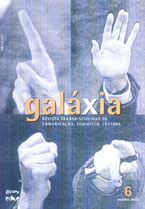<b>Cultura e conflito: lições da cidade de Atenas na guerra do Peloponeso</b>
Abstract
O artigo analisa e contextualiza os três discursos de Péricles nos primeiros anos da Guerra do Peloponeso, situando sua ênfase no papel da cultura durante a guerra. Além disso, o texto refere-se a outros aspectos da narrativa do historiador grego Tucídides que privilegiam fatores da cultura durante o curso do conflito no mundo helênico. Os episódios do início da guerra do Peloponeso servem como um argumento contraposto às suposições recentes de autores como Huntington, em The Clash of Civilizations, que acreditam haver um causa cultural para os conflitos entre nações e que as diferenças culturais serão aplainadas pelo exercício inevitável da influência cultural, da diplomacia e da força militar propriamente dita. Além de ser uma análise histórica, o artigo postula uma crítica à idéia de que as culturas são causas de guerras, além de uma refutação í presunção de socialização excessiva presente nas teorias convencionalistas da cultura. O trabalho argumenta em favor da seleção natural darwiniana como um estágio primordial no entendimento das relações entre conflito e cultura. Palavras-chave conflito, cultura, estratégias de guerra, semiótica da guerra, discursos cívicos. Abstract The article analyzes and contextualizes the three speeches of Pericles during the early days of the Peloponnesian War, emphasizing not only Pericles’ contentions as well as the ones formulated by the Greek historian Thucydides about the role that Athenian culture plays during the conflict. The events at the beginning of the Peloponnesian War serve as an argument contrary to recent assumptions, such as the ones of authors like Huntington in The Clash of Civilizations, which presume that there is a cultural cause for the conflict between nations, and that cultural differences will be leveled out through the inevitable exercise of diplomacy, cultural influence or military force per se. The paper is more than a historical interpretation: it presents a critique to the idea that cultures are the cause of wars; it also refutes the notion of oversocialization claimed by conventionalist theories of culture. The work claims that the Darwinian theory of sexual selection is a primordial stage in the understanding of the relations between cultures and conflict. Key words conflict, culture, strategies of war, Semiotics of war, civic speechesDownloads
Published
2007-02-22
How to Cite
Neiva, E. (2007). <b>Cultura e conflito: lições da cidade de Atenas na guerra do Peloponeso</b>. Galaxia, (6). Retrieved from https://revistas.pucsp.br/index.php/galaxia/article/view/1336
Issue
Section
Artigos | Articles
License
I cede the copyrights to publication of my article to Galaxia journal and will consult the journal’s scientific editor should I decide to republish it later in a book.



 Este obra está licenciada com uma Licença
Este obra está licenciada com uma Licença 